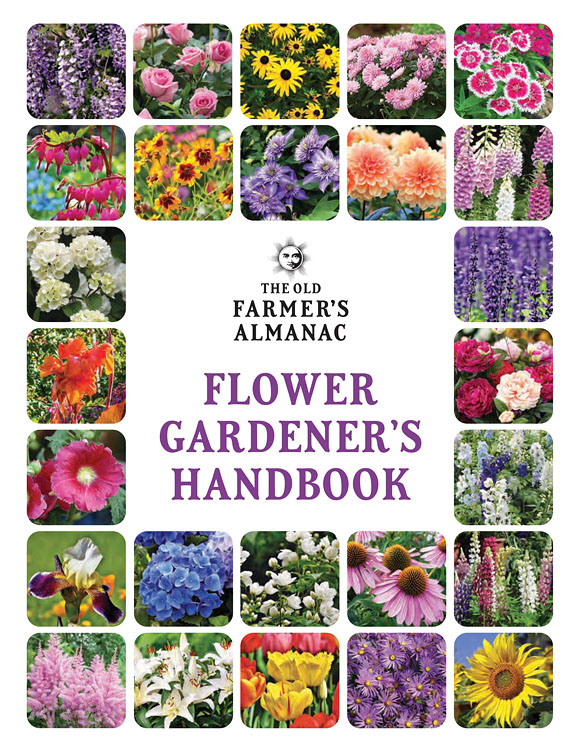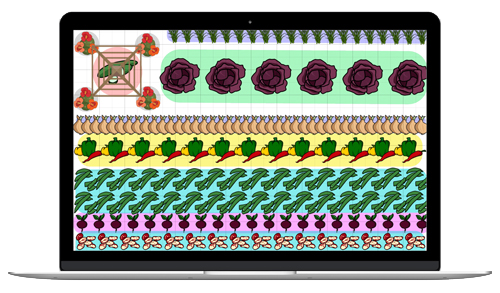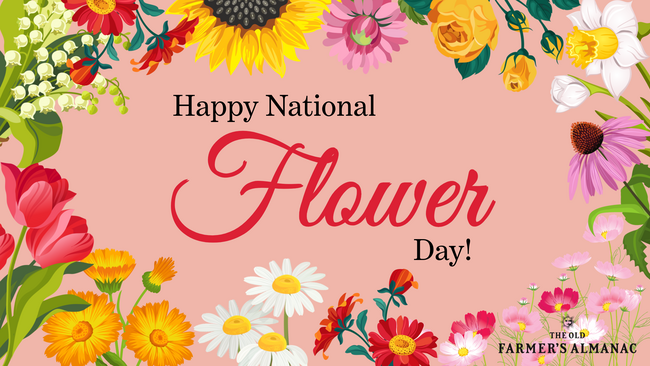Want to grow flowers? Let’s talk about how to get started. Here are seven things to think about before setting up a flower bed from scratch—from selecting the right site to choosing the perfect flowers!
As a cut flower farmer who’s been gardening for over two decades, I am relieved every day when I remember that gardens grow slowly, and we can, too. Gardening is more a way of life and evolves over time with a lot of failures and triumphs and, thankfully, beauty overall.
As a farmer, most of my flower growing these days happens in long 100’ rows lined up one after the other. The layout is optimized for the efficiency of planting, weeding, and harvesting. It’s more of a process of function over form, though. Don’t get me wrong; the beauty can still stop me in my tracks and take my breath away.
This year, however, I am adding a smaller perennial garden with the goal of beginning to root in some long-term beauty in the front of our barn to spruce it up a bit. In the upcoming posts, follow along the process as I think through, design, and dig into a new raised-bed garden for the bees, the birds, and the beauty of it.
For now, though, let’s dig into the first steps that must be considered before we even get to planting.

What to Consider First
The first decision to make is what type of garden it is going to be? Imagine that before us lies a blank slate of black soil. We know we want to see summer days full of beautiful shapes of flashy reds, cheery yellows, and passionate purples dancing across a blue summer sky, but we don’t even know where to begin. As mother nature transitions from one season to the next, it is never a linear leap. It is more organic, cyclical and most often slow.
Think about the basic lawn full of dandelions. It isn’t totally green one day and then fully bloomed out the next. Flowers grow slowly and bloom in their own time, and that is one of Mother Nature’s secrets. When you are about to derail yourself from moving forward with too many choices, stop. Remind yourself that it’s okay to pick one and grow slowly and just keep going. The joy and beauty you will be rewarded with in time will be worth all of your efforts and will fuel ideas for next year’s garden or areas where you might want to improve or change things up a bit.
See my last post about the healing benefits of growing a flower garden!
7 Steps to Set Up a Flower Bed
To start, though, below are seven basic steps that I always consider when setting up a garden space from a bare plot of earth:
- Location: Where are you going to be planting, and what are the light conditions, wind, and watering options of that space? Will you need to haul water or is there a well or rain collection option close by? An area with strong winds can be brutal on flowering plants and make it really tough for them to withstand and hold a bloom. Given your conditions, knowing whether it is patio pots in shade or raised beds in full sun will help you to know best what flowers can grow and thrive in your particular proposed garden space.
- Type Of Garden: Understanding the growing conditions you have to work with can help you determine what type of garden flowers you can grow there. Themed gardens like an herb garden, pollinator patch, cutting garden or border display garden are a few of the options that you can choose from. It is best to focus on how you plan to enjoy your garden space most? Do you want a garden that you can cut from for gorgeous table bouquets or do you want to pick fresh oregano for the evenings meal or maybe you love spending time sitting outside and reading and gazing on beautiful borders of color and shapes? Knowing what you want out of your garden will help you to understand what you will need to put into it.
- Soil Is the Soul of the Garden: Soil matters more than you might think. Great fertile soil is the basis of beautiful and bountiful plants and flowers. Sometimes we just start with dirt and create luscious soil over time by adding in compost, leaf mulch and rich organic matter. It is best to know if you have sandy, rocky, clay or silt type soil and dig into the optimal ways to build it up. Sometimes using a lasagna method of layering newspaper, cardboard and grass and compost over time can be the best way to go.
- Choosing Flowers to Plant: This is the super fun part! You get to be creative and allow your inner artist to play with the design, colors and shapes of the flowers sometimes following nothing more than your whim! With flowers, they do not all bloom at the same time and so it is important to consider what you are planting and bloom time so that you have a succession of blooming beauties throughout the spring and summer into early fall. Remember, there is no wrong way to plant a garden except to not plant one at all!
- Planting: Once your flower bed is set and the soil is prepped the next step will be to plant. Unless you know that you have cold-hardy plants such as snapdragons or pansies or various other varieties, then you should always wait until after first-frost. You have options with your flowers to either plant direct seeds, potted-up starts from a nursery or seedlings that you have grown and nurtured yourself within your home. Often times, a combination of the above can work too. For a first year garden, buying already started flowers can be very helpful to get you going. Seed-starting, especially in zones with a shorter growing season, require a lot of planning ahead to start seeds early enough.
- Nurturing: Early morning walks around your flower garden with a cup of coffee and bird song as your backdrop might just be what is referred to as “Heaven on Earth”. It certainly feels that way to me! It is the time of the day when you get to take in the subtle changes happening with your plants and often notice the not-so-subtle joy of a newly bloomed flower or feel the anticipation as you spot the budding potential bloom that is to come soon. There is something magical about the warm, misty morning air and the soft light of a new day falling on a flower petal that reminds us and grounds us in the beauty and possibility of life. Nurturing your garden throughout the season often comes down to attention. Seeing the weeds and pulling them before they get crazy big and troublesome. Noticing droopy leaves and the thirst for water. Spotting a plant that’s leaves are getting munched away and will be soon struggling under the attack of pests. Nurturing is paying attention and then taking action to remedy what you see.
- Enjoying: One of the last but not least benefits throughout the growing season is allowing yourself the time to enjoy the fruits of your labor. As a flower farmer, we hustle often to pick flowers before they fully bloom to maximize vase-life for our customers bouquets. Making the intentional time and space for enjoying the beauty that I am surrounded with daily is a practice and takes intention to pay attention and when I do I am transformed. Whether it is picking some fragrant herbs for an evening mint and lavender lemonade to savor or cutting some especially beautiful flowers to sweetly arrange and share with a neighbor or simply sitting quietly with the garden in view and appreciating the learning, the growing and the beauty, one of the most rewarding aspects of tending to a plot of Earth is simply, as the garden blooms so does the gardener.

Up Next: Preparing The Plot
Follow along this season as I start from scratch with a new raised flower garden bed that will be added in front of our barn space with the goal of adding beauty, seasonal color and a smorgasbord of native plants for the pollinator population to feast in.
We will go step-by-step and start by making the raised bed from some old boards that are leftover from a project and have been sitting in the barn just awaiting the next use. What type of garden are you considering for this season? If space for a garden is limited, don’t underestimate the potential of potting into flower pots. The versatility of flower pots is a tremendous benefit and the joy that comes from flowers can pop up anywhere and everywhere. However you decide to grow flowers, let’s get ready to grow slow and plant some beauty!
Next Up: How to Build Your Raised Flower Bed.

To get started flowering gardening, pick up a copy of The Old Farmer’s Almanac Flower Gardener’s Handbook.















